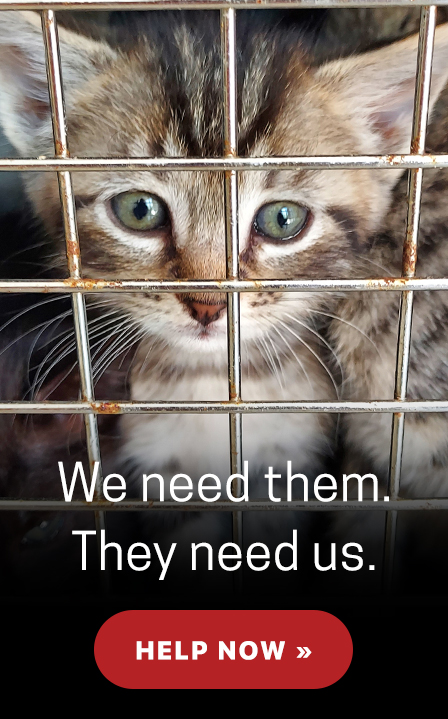Pet “overpopulation” encompasses two primary factors: (1) allowing cats and dogs to reproduce with little chance to find homes for the offspring and (2) pets being relinquished by owners who can no longer keep their animals, or who no longer want them.
Every year, millions of cats and dogs are euthanized in our nation’s animal shelters because there are more pets than there are responsible homes for them. Until this issue is resolved, American Humane believes that all cats and dogs adopted from public or private animal care and control facilities should be spayed or neutered (i.e., sterilized). Such sterilization includes prepubertal spaying and neutering of kittens and puppies. American Humane supports the passage of laws and regulations mandating that all cats and dogs adopted from public or private animal care and control facilities be sterilized. It is less certain that community-wide mandatory spay/neuter laws are effective in addressing pet overpopulation. More information needs to be gathered on the benefit of prior legislative initiatives to determine long-term benefits.
American Humane encourages the veterinary profession to assist, whenever and however possible, in reducing the number of unwanted pets. This involvement includes supporting the neutering of cats and dogs adopted from public or private animal care and control facilities – thereby controlling the ongoing contribution of offspring to pet overpopulation. Veterinarians should continue to use their best judgment when recommending appropriate sterilization ages for individual cats and dogs owned by clients, especially those clients who are wellknown and likely to permit an unwanted pregnancy to occur prior to surgery. Short-term and long-term health risks for each animal should always be assessed. American Humane encourages research into the development and use of nonsurgical methods of sterilization.
American Humane also supports research to assess the causes for pet relinquishment. Prior research studies suggest that 7 to 20 percent of pets entering a home are no longer in that home six months after acquisition. These animals often end up at shelters, contributing to the pet “overpopulation” issue. Thus, American Humane wishes to understand individual, cultural and community issues that lead to pet relinquishment and to develop practical and effective intervention strategies.
What you can do to combat pet overpopulation:
- If you are adding a pet to your family, make sure the pet comes from a legitimate shelter, nonprofit rescue group or a responsible, humane breeder.
- Always spay and neuter your pets.
- Consider all the responsibilities and consequences of pet ownership before deciding to get a pet and always make a lifetime commitment to your pet.
- Educate your children, friends, family members and co-workers about pet overpopulation, adoption and the importance of spaying and neutering.
You can help stop generations of suffering. Have your female pet spayed and your male pet neutered. Don’t allow them to breed and add to the pet overpopulation problem.

